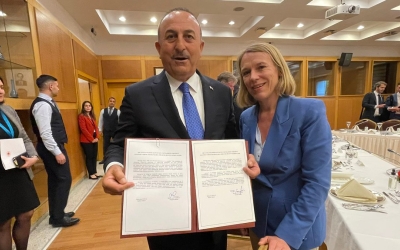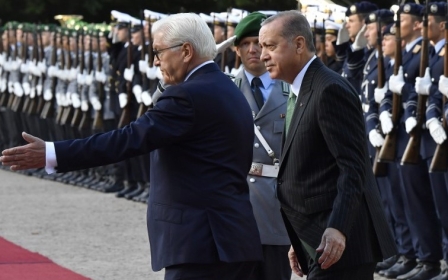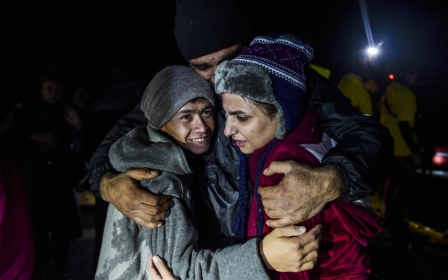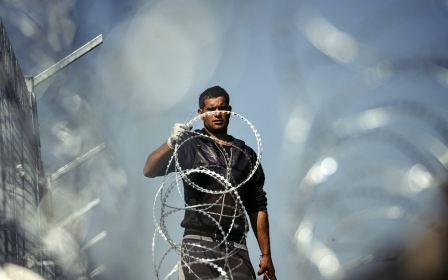Turkey-EU: How to resolve the Schengen visa debacle
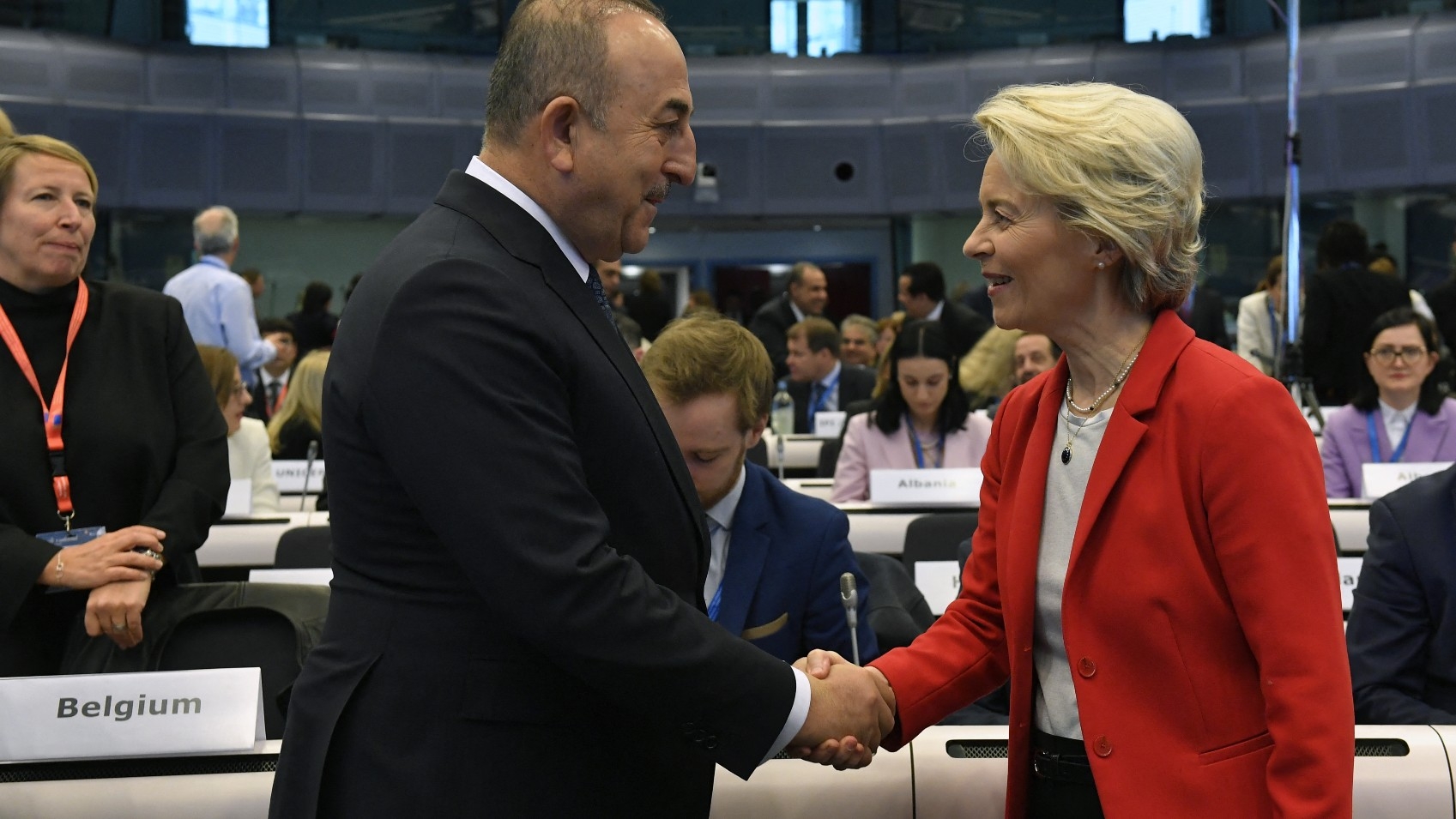
During the past year, and especially in recent months, social media in Turkey has been flooded with reports of rejected Schengen visa applications.
These rejections have not only affected ordinary citizens but also numerous artists, journalists and business people. People who previously received a visa quite easily to give concerts, attend conferences or trade fairs and meetings are now faced with rejected applications without being given a valid reason.
Confronted with growing criticism about this issue, EU officials are trying their utmost to deny the existence of political reasons behind these rejections.
The head of the EU delegation to Turkey, Meyer-Landrut, has seized every opportunity to try to convince the Turkish public that these rejections are not based on political grounds, but on the merits of each application.
Often contradictory in nature, these statements fail to properly explain what is going on.
For instance, the rejection rate in 2022 slightly decreased from 16.9 percent in 2021 to 15.7 percent, even though 2021 was still a Covid-19 year with lockdowns in several EU member states. This slight decrease is often put forward as an argument claiming that the current rejection rate is not abnormal.
However, a look at the European Commission's statistics on issued visas shows an undeniable increase in the rejection rate since 2015. This figure was 3.9 percent in 2015, 6.5 percent in 2017 and 9.7 percent in 2019.
Is the rise in asylum applications by Turkish nationals the reason?
No adequate answer
The rise in asylum applications by Turkish nationals is mentioned as a possible reason for the increase of rejections. Although there is a significant rise in asylum applications by Turkish nationals, this argument doesn't hold up for several reasons.
First, although this might seem odd at first, the EU does not simply (re)adjust its visa policies based on the number of asylum applications by nationals of a third country.
Not that it lacks the tools to do so. On the contrary, the EU's Visa Regulation contains a Visa Suspension Mechanism monitoring the fulfilment of visa exemption requirements by the visa-exempt countries in the western Balkans (Albania, Bosnia and Herzegovina, Montenegro, North Macedonia and Serbia) and in the Eastern Partnership (Georgia, Moldova and Ukraine).
In 2022, the number of asylum applications from Albania, which has a total population of 2.8 million, was 13,043. The number of asylum applications from Georgia, which has a total population of 3.7 million, was 28,797. In comparison, asylum applications by Turkish nationals were 55,437.
In addition to the aforementioned countries, whose nationals obtained visa-free access to the EU following the completion of a visa liberalisation dialogue, there are more than 50 other countries whose nationals are also exempt from a visa. Among these visa-free countries are Venezuela, Colombia and Peru which account for a significant part of asylum applications: 50,833, 43,279 and 12,828, respectively. Venezuelans and Colombians even lodged about three times as many asylum applications in 2022 as in 2021.
Most importantly, the rise in asylum applications by Turkish nationals fails to explain the rejection of visa applications by famous artists, journalists and affluent business people who were previously granted visas.
In this context, the claim of a rise in forged documents is also mentioned as a reason for visa rejections. Yet again, this explanation is insufficient, as it does not explain the numerous rejected applicants who have properly submitted all the right documentation, and in most cases not for the first time.
An adequate answer to the rise in rejections of visa applications by Turkish nationals is yet to be provided.
So how did we get here and what can we expect?
The Schengen visa file and the topic of visa liberalisation is one of the main irritants in Turkey-EU relations. It is an issue which directly affects Turkish citizens (family, study, tourism, business trips) and their perception of the EU.
Preceded by years of fierce political and legal debate on visa facilitation, liberalisation and the way in which the rights of Turkish nationals under previous EU-Turkey agreements were upheld, a Visa Liberalisation Dialogue (in parallel with the signature of the EU-Turkey Readmission Agreement) was launched in December 2013.
The Dialogue was based on a roadmap which set out the requirements that Turkey would need to meet: the so-called "72 benchmarks".
EU member states wanted the European Commission to take steps towards visa liberalisation "as a gradual and long-term perspective" and added the infamous "implementation vis-a-vis all member states" as a condition in the council's conclusions pertaining to this launch.
Walking on a treadmill
A kickstart to this file was attempted during the so-called migration crisis of 2015-2016.
Due to Ankara's strategic incompetence and gullibility, as well as the EU member states' insincerity, the "EU-Turkey deal" raised false hopes of an expedited visa liberalisation process. Ankara went ahead and implemented some of the commitments it had made, but found itself on a treadmill, i.e., taking steps without actually going anywhere.
The so-called 'EU-Turkey deal' raised false hopes of an expedited visa liberalisation process
It was evident from the beginning that Ankara would gain little, if anything, from this deal, let alone visa liberalisation. Additionally, the 'EU-Turkey deal' created an overlap with the readmission agreement between the EU and Turkey, further complicating matters.
When Turkey suspended the readmission agreement in 2019, its impact was minimal since parts of the agreement had already been covered by the 'EU-Turkey deal'.
Fulfilling the outstanding five benchmarks in 2016 would not have automatically led to visa liberalisation.
The political realities at the time and the link between political developments in individual member states and their positions in the Council of the EU would have prevented this then and would still prevent this now.
In 2017, there were elections in over half a dozen member states, including France, Germany and the Netherlands.
Believing that visa liberalisation will be granted to Turkey is naive at best, considering that individual EU member states continue to violate previous agreements by actively impeding the economic freedoms Turkish nationals are entitled to.
Anti-terrorism legislation
Apart from the fact that member states would have never agreed on this, one could also not expect the European Parliament to agree; at the time, there was not even a referral to committee-level discussions. Visa exemption is an ordinary legislative procedure. The European Parliament and EU members act as co-legislators on this file.
Certain political groups were outspoken on their position, saying that "even if benchmarks were fulfilled", this would not automatically lead to liberalisation. The European Parliament's view hasn't changed much since then regarding this file.
Of the five outstanding benchmarks, the amendments to Turkey's anti-terrorism legislation are the most debated. During the first visa liberalisation dialogue, Ankara said that it didn't consider this benchmark to be directly related to the visa dialogue.
The aim of these changes is 'to ensure the right to liberty and security, the right to a fair trial and freedom of expression, of assembly and association in practice'.
Ankara indicated that, as a candidate country, it had sufficiently fulfilled these criteria and that this should subsequently be dealt with in the negotiating chapters 23 and 24, which are currently blocked by the Republic of Cyprus.
Given the domestic developments and the numerous terrorist attacks in Turkey, which started in 2013 and peaked in 2015-2016, amending this legislation would have also been very politically challenging; particularly because Ankara started to realise that even if this legislation was amended, visa liberalisation would not necessarily follow.
The EU was not willing and Ankara was not able to push through and get this off the table.
It's easy to blame Ankara for not amending this legislation as part of a visa liberalisation deal, but when one considers that negotiations on visa waivers are done on a "case-by-case" basis, that is, without a fixed template and no one set of benchmarks, and when one looks at other examples, it's difficult not to understand Ankara's frustration.
For example, negotiations on the visa waiver agreement with the UAE were completed in 15 days without any conditions. At the end of April 2022 the European Commission proposed that Qatar and Kuwait should be granted visa liberalisation and two months later, the council had adopted its negotiating mandate.
Realism required
The most striking example, however, is the case of Kosovo. A visa liberalisation dialogue was launched in January 2012 and a roadmap was given in June 2012. In May 2016, the European Commission proposed visa liberalisation for Kosovo (with two outstanding benchmarks).
In July 2018, the European Commission confirmed that Kosovo fulfilled the remaining two benchmarks and called on the European Parliament and the Council of the EU to grant visa liberalisation to Kosovo.
While the European Parliament wanted to grant Kosovo visa liberalisation since 2016, and despite fulfilling all benchmarks since 2018, individual member states, like France and the Netherlands, maintained their opposition to visa liberalisation for Kosovo. In April 2023 Kosovo's visa liberalisation was finally signed and it will enter into effect in January 2024.
For more than a decade, I have been telling senior Turkish officials that visa liberalisation will not happen.
And it will not happen any time soon.
The moment Ankara acknowledges this and Brussels starts being honest about this, this charade will stop and we can move on by, for example, working on an extensive visa facilitation agreement which also incorporates the rights assigned to Turkish nationals under previous agreements like the Additional Protocol and subsequent Association Council Decisions and EU Court of Justice rulings.
Changing the existing framework in which this issue is discussed and negotiated would be the first step to a more realistic and pragmatic approach to this file.
The views expressed in this article belong to the author and do not necessarily reflect the editorial policy of Middle East Eye.
Middle East Eye propose une couverture et une analyse indépendantes et incomparables du Moyen-Orient, de l’Afrique du Nord et d’autres régions du monde. Pour en savoir plus sur la reprise de ce contenu et les frais qui s’appliquent, veuillez remplir ce formulaire [en anglais]. Pour en savoir plus sur MEE, cliquez ici [en anglais].


